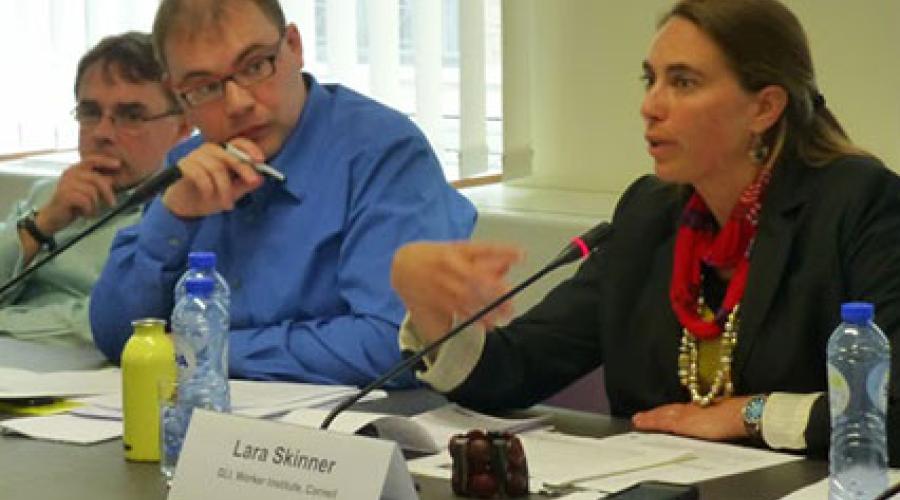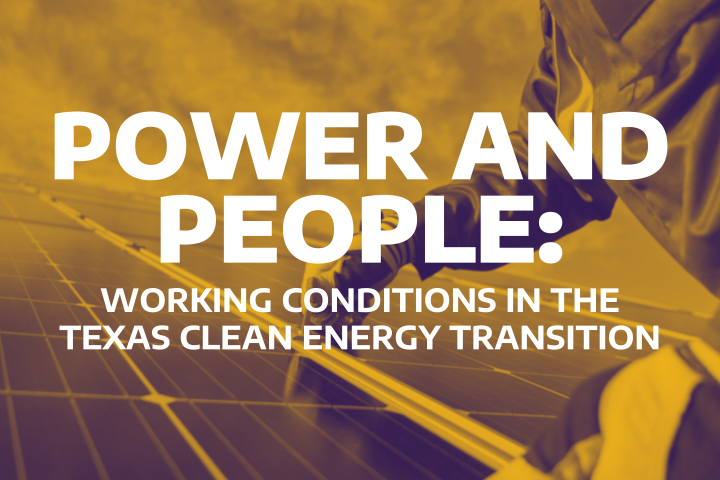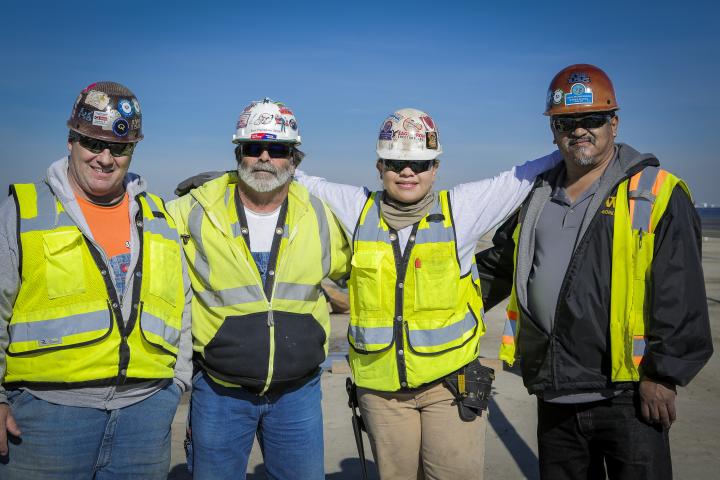
Transatlantic Social Dialogue 2013
A mix of 30 academics and trade union representatives from the United States and Europe met in Brussels, Belgium, for the 11th annual Transatlantic Social Dialogue June 13 to June 15.
Co-sponsored by the Worker Institute at Cornell, the Hans Böckler Foundation and the European Trade Union Institute, the event facilitates cross-national learning, enhances collaboration between trade unionists and academics and charts a vision based on a democratic, sustainable society.
This year’s meeting began with an examination of how trade unions in Europe, particularly Spain, Greece and Germany, are responding to austerity cuts and the Eurozone crisis.
U.S. scholars and practitioners rounded out the discussion by explaining how U.S. unions are reacting to public sector cuts and labor market reforms.
Cornell University ILR School Dean Harry Katz framed the discussion by asking whether the United States is experiencing a transformation of industrial relations akin to the 1980s private sector transformation. Lefteris Kretsos, University of Greenwich, analyzed the current situation in Greece and emphasized the need to build cross-class coalitions.
In response to the current ecological and climate crises, the Transatlantic Social Dialogue regularly holds panels on labor and environment issues. This year's session highlighted the Trade Unions for Energy Democracy initiative convened by the Worker Institute and its Global Labor Institute, as well as a presentation by Paul Hampton of the British Fire Brigades Union on how firefighting work is being transformed by the impacts of climate change.
European Trade Union Institute researcher Bela Galgóczi analyzed global renewable energy investment, revealing that such investment has actually decreased in recent years and that the much-needed transition to a low-carbon, equitable energy system has stalled.
Innovative organizing strategies were the focus of the event’s "Getting to 99%!" panel. This discussion was led by Maite Tapia, Worker Institute at Cornell; Jonas Berhe, IG Metall; Jane Holgate, Leeds University, and Fekkak Mamdouh, Restaurant Opportunities Center United.
Berhe outlined IG Metall's efforts to organize white-collar wind industry shops in Germany, and Holgate explored the opportunities and challenges unions face when allying with communities.
Mamdouh, co-founder and co-director of Restaurant Opportunities Center United, led participants "behind the kitchen door," describing a new approach to organizing restaurant workers in New York City and beyond. The organization’s mission is to improve wages and working conditions for the 10 million restaurant workers in the United States, where only one percent of the workforce is unionized and where the minimum wage for servers is $2.13 per hour.
A Transatlantic Social Dialogue panel on union busting showed how the phenomenon, with origins in the United States, has spread to the United Kingdom and Germany.
Well-paid management consulting firms now argue that employer "freedom of speech" trumps workers' freedom of association, creating a hostile organizing environment for unions on both sides of the Atlantic, panelists noted . The urgency and severity of this problem led event participants to explore further cross-national research on this issue for publication and presentation at future meetings of the group.
Ending the conference on a positive note, participants were reminded how these are hard, but exciting times, offering opportunities for trade unions and other movements to change the status quo.
The Transatlantic Social Dialogue started 11 years ago, developed with leadership from Worker Institute Director Lowell Turner and Lee Adler of the ILR School faculty;, Maria Jepsen ETUI ; Nikolaus Simon, Hans Böckler Foundation; Wolf Jürgen Rön>der of IG Metall and the Otto Brenner Foundation, and Reiner Hoffman of the ETUC and DGB . They have now passed this ambitious project on to the next generation, to carry forward in future years. The group's spring 2014 meeting will be held in New York City.



